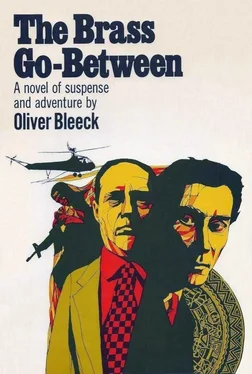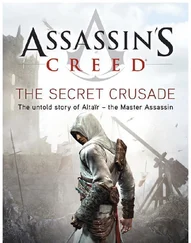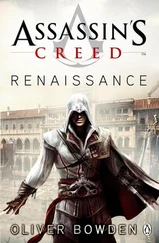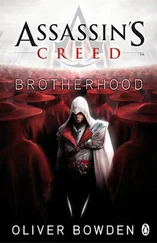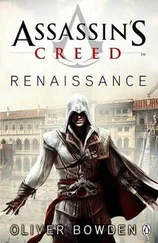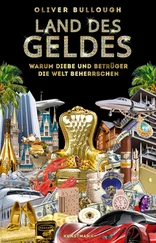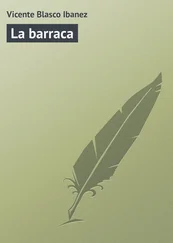Oliver Bleeck - Brass Go-Between
Здесь есть возможность читать онлайн «Oliver Bleeck - Brass Go-Between» весь текст электронной книги совершенно бесплатно (целиком полную версию без сокращений). В некоторых случаях можно слушать аудио, скачать через торрент в формате fb2 и присутствует краткое содержание. Город: New York, Год выпуска: 1969, Издательство: William Morrow, Жанр: Детектив, на английском языке. Описание произведения, (предисловие) а так же отзывы посетителей доступны на портале библиотеки ЛибКат.
- Название:Brass Go-Between
- Автор:
- Издательство:William Morrow
- Жанр:
- Год:1969
- Город:New York
- ISBN:нет данных
- Рейтинг книги:3 / 5. Голосов: 1
-
Избранное:Добавить в избранное
- Отзывы:
-
Ваша оценка:
- 60
- 1
- 2
- 3
- 4
- 5
Brass Go-Between: краткое содержание, описание и аннотация
Предлагаем к чтению аннотацию, описание, краткое содержание или предисловие (зависит от того, что написал сам автор книги «Brass Go-Between»). Если вы не нашли необходимую информацию о книге — напишите в комментариях, мы постараемся отыскать её.
Brass Go-Between — читать онлайн бесплатно полную книгу (весь текст) целиком
Ниже представлен текст книги, разбитый по страницам. Система сохранения места последней прочитанной страницы, позволяет с удобством читать онлайн бесплатно книгу «Brass Go-Between», без необходимости каждый раз заново искать на чём Вы остановились. Поставьте закладку, и сможете в любой момент перейти на страницу, на которой закончили чтение.
Интервал:
Закладка:
“Your husband was an addict. A junkie. He didn’t die from the wreck he was in. He died from a massive overdose of heroin.”
That didn’t bother her either. She smiled slightly; it was a cool, almost pitying smile. “You seem inordinately interested in my husband, Mr. St. Ives. Why?”
“Maybe I’m interested in knowing what kind of man would marry someone like you. Or rather, what kind of man would you consent to marry. Somehow a junkie doesn’t fit.”
“Is it really any of your business?”
I put my drink down on the glass-topped table with a clatter. “You’re damned right it’s my business. One person has already died because of this shield, two if you count his wife who hanged herself. Now with your husband dead from an overdose of heroin, I think the score is now three dead and I don’t want me to make it four.” I purposely left out Spellacy although his death would have helped to run up the total.
“You do become belligerent, don’t you?”
“It’s only one of many failings.”
“You should try to correct it.”
“I’ll work on it this Fall. You think group therapy might help?”
“I’m sure it would do you a world of good.”
“You knew he was an addict?”
“Yes,” she said. “I knew. It would be most difficult not to know.”
“Where’d he get it?”
“I never inquired.”
“How’d he pay for it?”
“May I have one of your cigarettes? I quit smoking three years ago, but—” If this was a crack in her composure, it was a small one. She sat in the wingbacked chair, the barely tasted drink on a table, her hands folded over the blue purse in her lap. I rose and offered her a. cigarette and lit it for her. She inhaled deeply and then blew the smoke out in a thin stream.
“Silly, isn’t it?”
“What?”
“Wanting something like that suddenly, wanting it so bad that — well, never mind.” She inhaled some more smoke and blew it out. “I’m going to tell you about my husband, Mr. St. Ives. I’m going to tell you about him because I don’t want you poking around in my life. There are too many snoops abroad in the land today who seem bent on destroying privacy. I resent it. I wholeheartedly subscribe to the right to be let alone, as someone phrased it several years ago. So after I tell you about my husband, I sincerely hope that you will do just that — let me alone.”
She paused, as if expecting me to assure her that I would take the next plane to El Paso and never come back once she had told me about her husband. I only nodded.
“My husband, before he became addicted, was not only a brilliant artist, he was also — or could have been — one of the nation’s leading museum directors or curators. He studied with Paul Sachs at the Fogg Art Museum at Harvard in the early 1940’s. He was very young then, no more than a precocious sixteen or seventeen, and in 1943 he joined the Marines and saw action as a combat artist, I think they called them, at Iwo Jima where he did an unusually good series of water colors which were reproduced in Life and which brought him nationwide attention. After his discharge from the Marines he was offered a post as director of a small but good museum in the Midwest. From there he went to a better position in Chicago and then to New York as head of a private museum. It doesn’t matter to you which one, does it?”
“No,” I said. “It doesn’t.”
“We met here in New York at some party. I had wanted to paint, but I wasn’t good enough to be good and I had enough sense to realize it. So I did the next best thing. I turned to museum work. George was extremely helpful. He was painting almost every spare moment that he could find and he was good. Terribly good. Some of his friends who had seen his work begged him to hold an exhibition, but he always refused, claiming that the time wasn’t quite right. When I finished my studies we were married and I was appointed director of a small museum here in New York — largely on George’s recommendation. A few years later the offer came from the Coulter Museum. He turned it down.”
“He?” I said.
“Yes. They wanted George. He recommended me. Strongly. And with a few misgivings on Mr. Spencer’s part, I was hired.”
“Why did he turn it down?”
She shrugged. “He’d decided that he no longer was interested in museum work. He wanted to paint full time. I agreed, of course, and we moved to Washington. The salary was more than adequate and for a while things worked out quite well.”
“Then what?”
“George went into a deep depression. He stopped painting, drank too much, sometimes disappeared for days at a time. Finally, about a year and a half ago, he told me that he was addicted to heroin. I don’t know when it really began; he would never tell me.”
“How big was his habit?”
“I don’t know.”
“All right. How much did it cost him a day?”
“Toward the end it was around two hundred dollars.”
“Where did he get it?”
“He sold his paintings. All of them, one by one. They brought very good prices. As I said, he was brilliant.”
“But he finally ran out of paintings.”
“Yes.”
“Then what?”
“I gave him money.”
“For how long?”
“Several months.”
“Until it ran out?”
“Yes.”
“Then?”
“Then one day he said that he didn’t need any more money. That he’d found a private supply of heroin.”
“When was this?”
“Two months ago, perhaps two and a half months.”
“How many people knew about it?”
“About what?”
“His addiction.”
“Not many. His doctor. A few old friends who’d moved to Washington when Kennedy was elected. Mr. Spencer. I told him; I thought it only fair.”
“What did Spencer say?”
“He was most understanding and sympathetic. He even offered to pay for George’s treatment in a private sanitarium.”
“What happened?”
“George refused.”
“What did Spencer say then?”
“Nothing. He never mentioned it again.”
“And that’s all who knew — a few friends and Spencer?”
“Yes.”
“There was somebody else,” I said.
“Who?”
“The guy who furnished the private supply.”
Chapter twelve
Frances Wingo left at three-fifteen to catch the four o’clock shuttle back to Washington. At the door, just before she left, she turned and said, “You really do think my husband was somehow connected with the theft of the shield, don’t you?”
“Yes. I thought I’d made that plain.”
“How?”
“How was he connected?”
“Yes.”
“I don’t know,” I said. “I have an idea, but I’m not sure. I don’t really know that I’ll ever be sure.”
“It has something to do with the guard, the one who was killed, hasn’t it?”
“I think so.”
“Will you tell me what your theory is?”
“No, because right now that’s all it is, just a theory.”
“And if it becomes more than a theory?”
“Then I’ll tell you; if you still want to know.”
She looked at me carefully for several seconds. “I assure you, Mr. St. Ives, I will want to know. Very much.”
“All right,” I said.
“And you’ll let me know what happens this evening?”
“Yes.”
“Call me at home,” she said. “I’ll give you my number.”
She gave me her number and I wrote it down. “I would walk you to the elevator,” I said, “but I don’t want to leave the suitcase by itself.”
“That’s quite all right. Good-by, Mr. St. Ives.”
“Good-by.”
I stood in the doorway and watched her walk down the hall, a tall, blonde woman with short-cropped hair, a widow of four weeks who now could cry herself to sleep every night because her husband, brilliant but dead, had been not only a junkie, but probably the accomplice of thieves. There was, I decided, a lot of waste in the world.
Читать дальшеИнтервал:
Закладка:
Похожие книги на «Brass Go-Between»
Представляем Вашему вниманию похожие книги на «Brass Go-Between» списком для выбора. Мы отобрали схожую по названию и смыслу литературу в надежде предоставить читателям больше вариантов отыскать новые, интересные, ещё непрочитанные произведения.
Обсуждение, отзывы о книге «Brass Go-Between» и просто собственные мнения читателей. Оставьте ваши комментарии, напишите, что Вы думаете о произведении, его смысле или главных героях. Укажите что конкретно понравилось, а что нет, и почему Вы так считаете.
